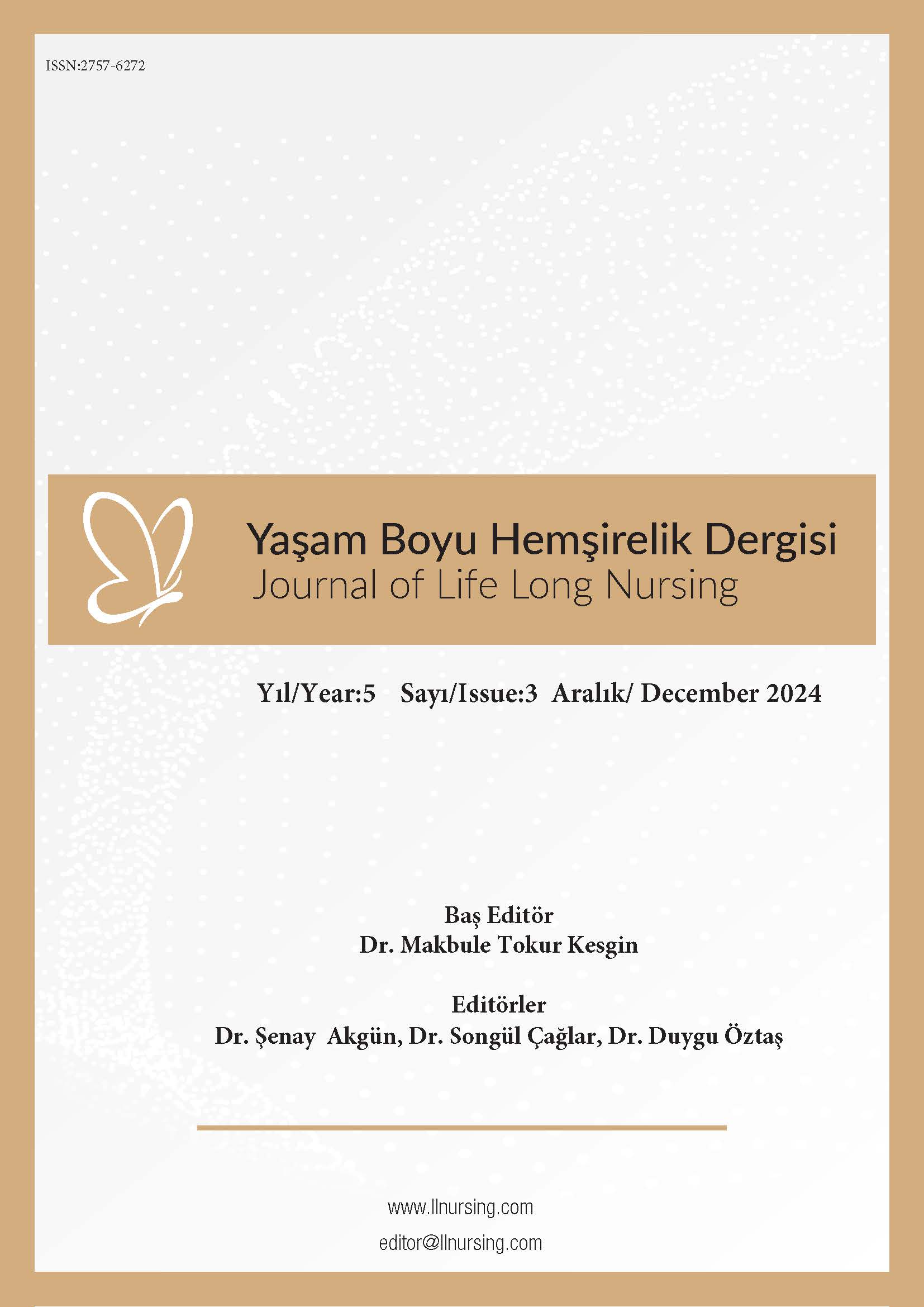Author :
Abstract
Amaç: Jinekolojik kanserler vücudun tüm sistemlerini etkilemesi nedeniyle, bütüncül hemşirelik bakımı uygulamalarını gerektirmektedir. Neuman Sistemler Modeli, açık bir sistem yaklaşımı önerdiği ve birbiriyle etkileşim halindeki beş ana değişkeni ele aldığı için özellikle bütünsel bakıma uygundur. Bu çalışma nüks over kanserli hastanın hemşirelik bakımında Neuman Sistemler Modeli'nin uygulanabilirliğini araştırmayı amaçlamaktadır. Yöntem: Bu vaka çalışmasında, 50 yaşındaki bir kadın hastaya Neuman Sistemler Modeli'ne temellendirilerek hemşirelik bakımı geliştirilmiştir ve uygulanmıştır. Hemşirelik bakım planının geliştirilmesinde Neuman’ın Neuman Sistemler Modeli'ne özgü geliştirdiği altı maddelik Neuman Tanılama Aracı kullanılmıştır. Bulgular: Neuman Sistemler Modeli'ne göre nüks over kanserli hastanın çeşitli fizyolojik, psikolojik, sosyokültürel ve gelişimsel sorunları tespit edilmiştir. Bu sorunların önemli bir çoğunluğunun kanserin nüks etmesinden kaynaklı kümülatif fizyolojik ve psikolojik sorunlar olduğu belirlenmiştir. Sonuç: Sonuç olarak Neuman Sistemler Modeli, hemşirelere tüm sistemlerin etkilendiği nüks over kanserli hastalarla ilgili kapsamlı veri toplama, hastanın sorunlarına bütüncül bakma ve uygun hemşirelik tanıları ile etkili girişimlerin uygulanmasında teorik bir çerçeve sunmaktadır.
Keywords
Abstract
Aim: Gynecological cancers require holistic nursing care practices because they affect all systems of the body. The Neuman Systems Model is particularly suited to holistic care because it proposes an open systems approach and addresses five majör interacting variables. This study aims to investigate the applicability of Neuman Systems Model in the nursing care of patients with recurrent ovarian cancer. Methods: In this case study, nursing care was developed and applied to a 50-year-old female patient based on NSM. The six-item Neuman Diagnostic Tool, developed specifically for Neuman Systems Model by Neuman, was used in the development of the nursing care plan. Results: According to Neuman Systems Model, various physiological, psychological, sociocultural and developmental problems have been identified for patient with recurrent ovarian cancer. It has been determined that a significant majority of these problems are cumulative physiological and psychological problems caused by cancer recurrence. Conclusion: As a result, Neuman Systems Model offers nurses a theoretical framework for collecting comprehensive data on patients with Recurrent ovarian cancer in which all systems are affected, looking at the patient's problems holistically, and implementing effective interventions with appropriate nursing diagnoses.





